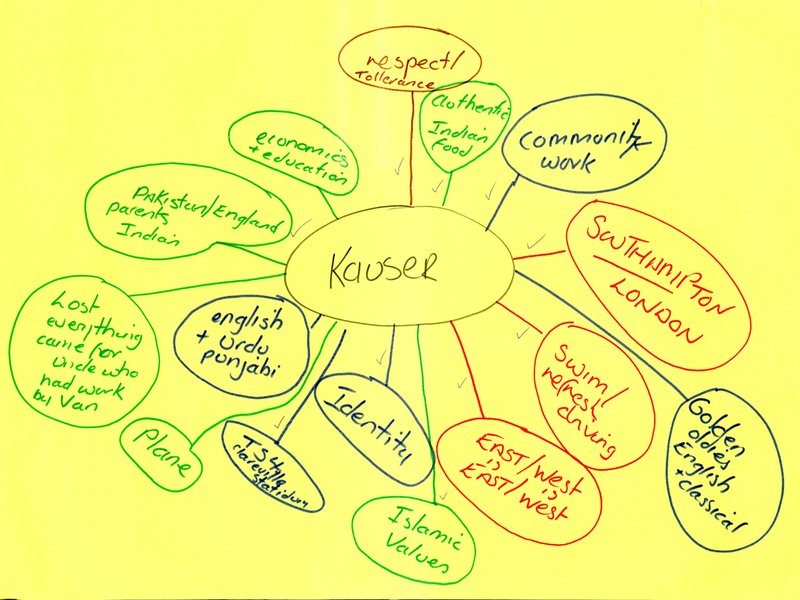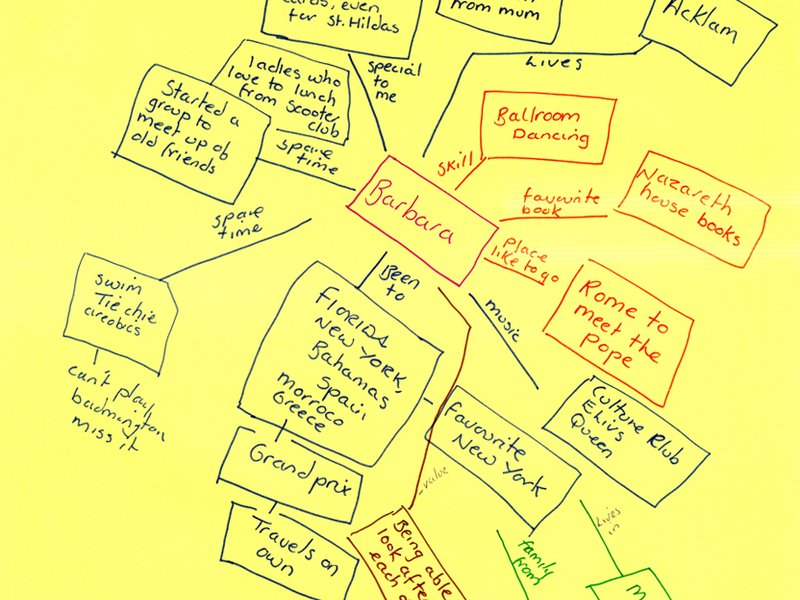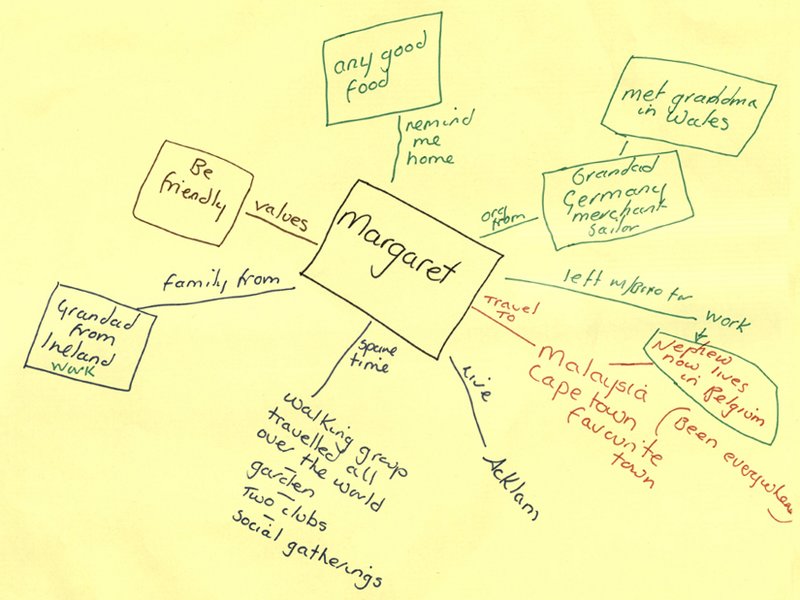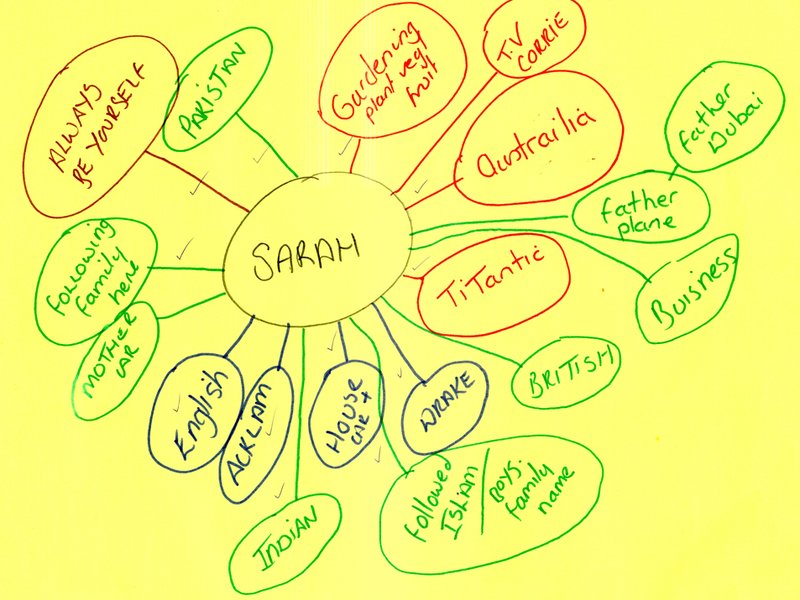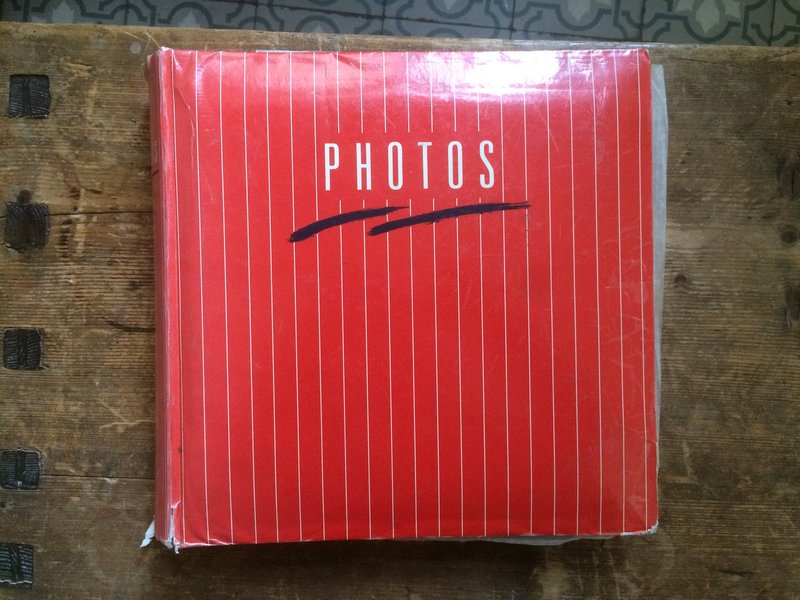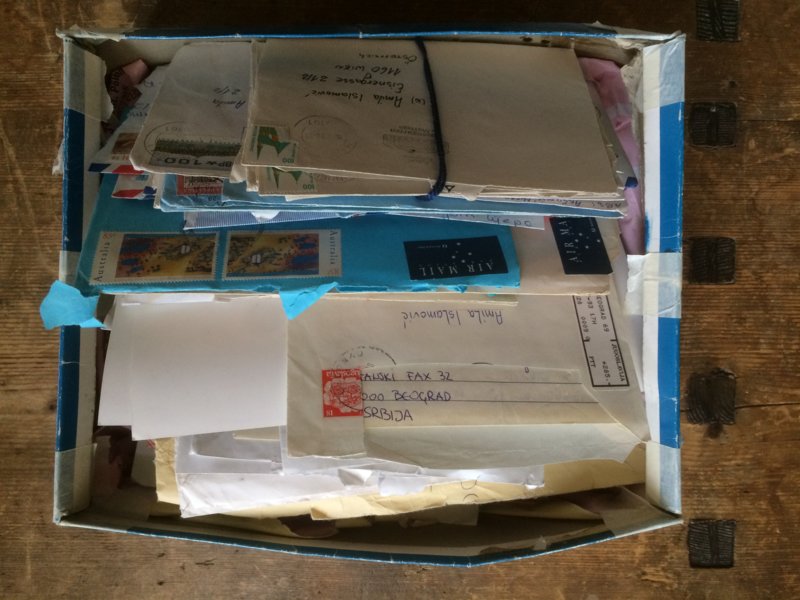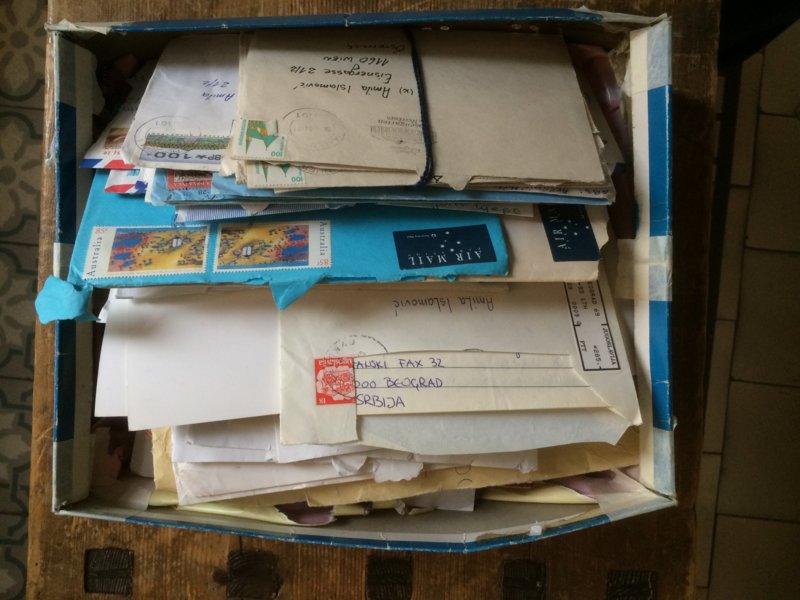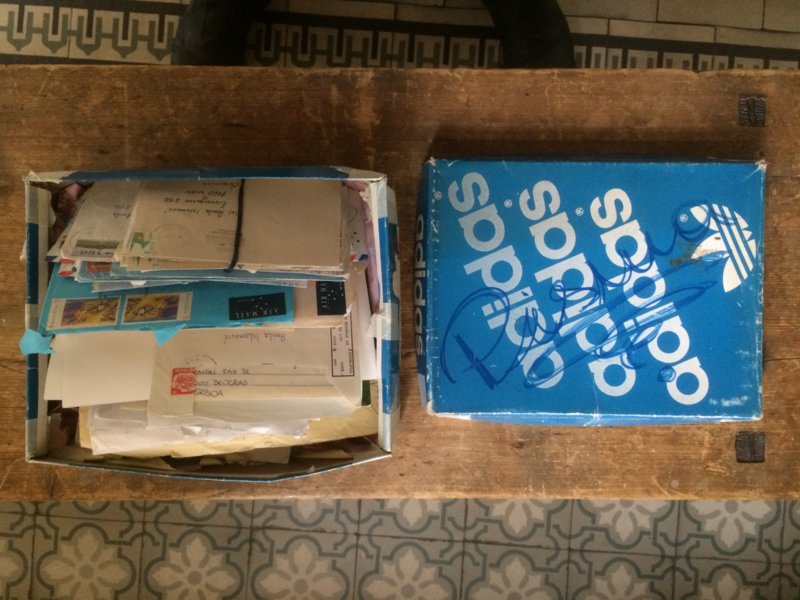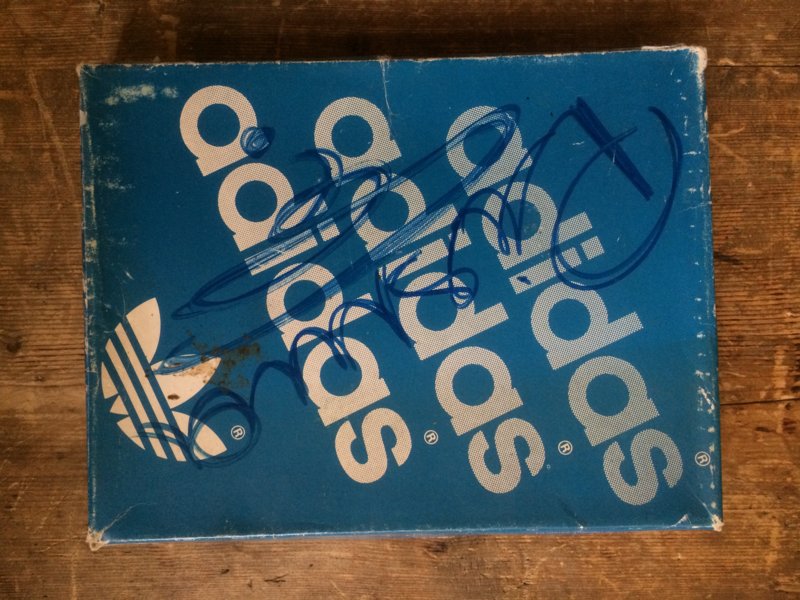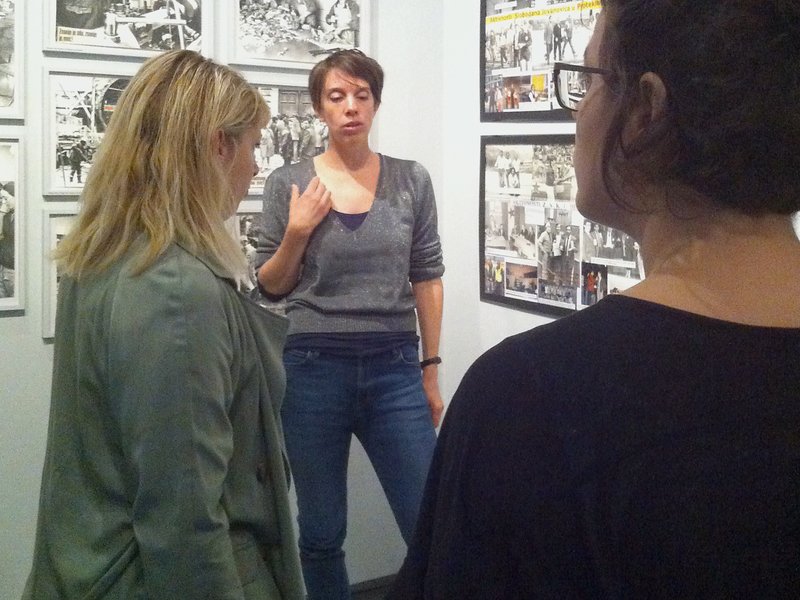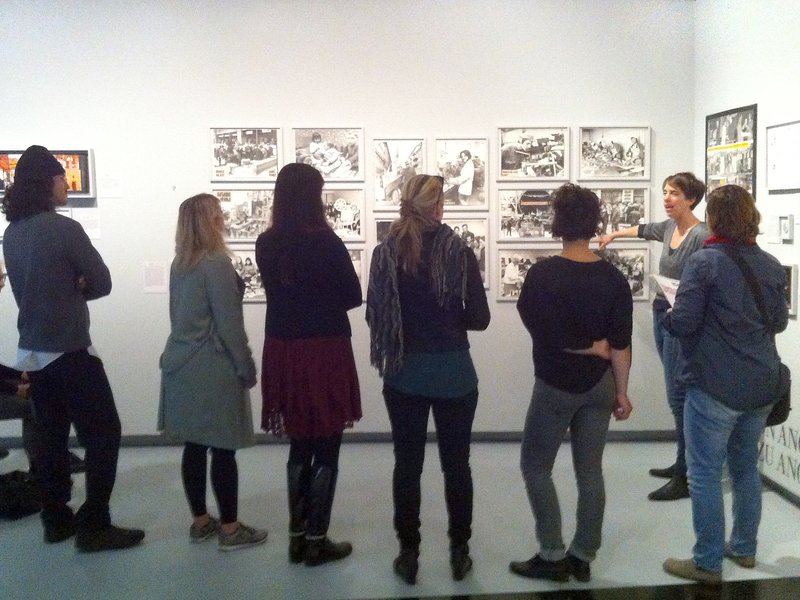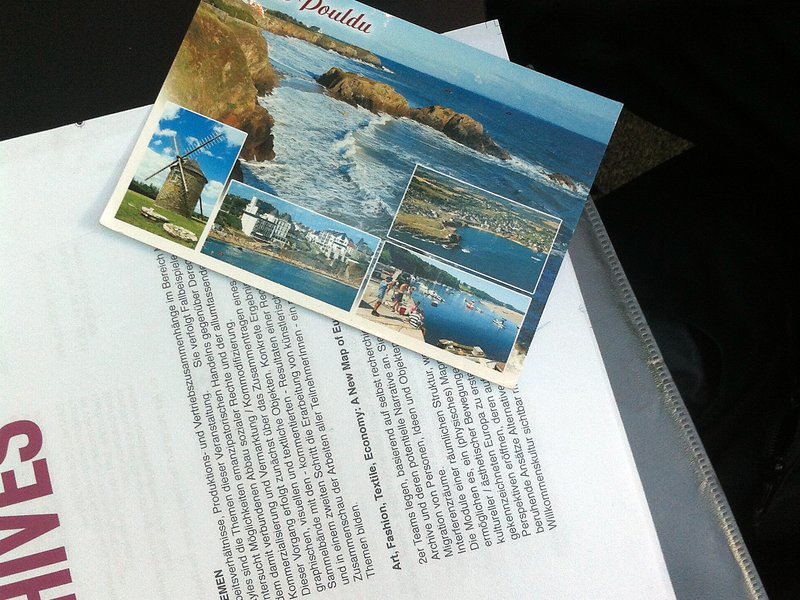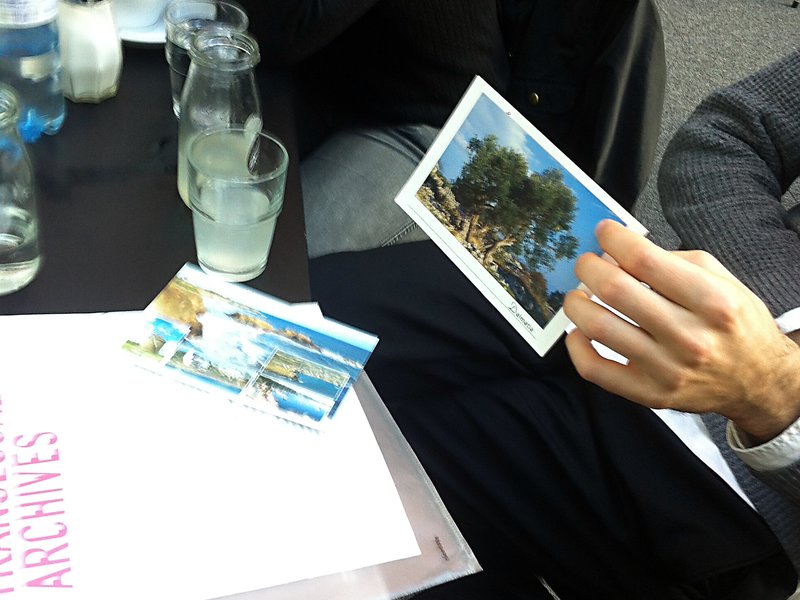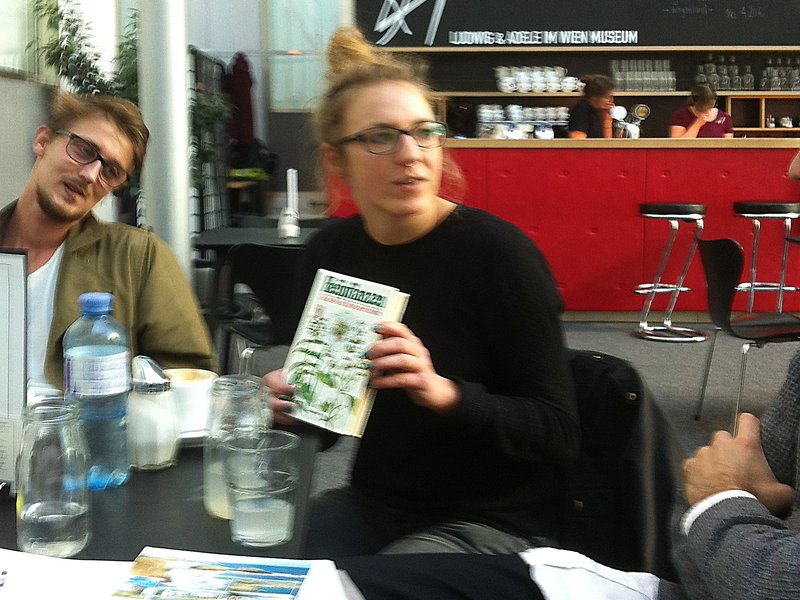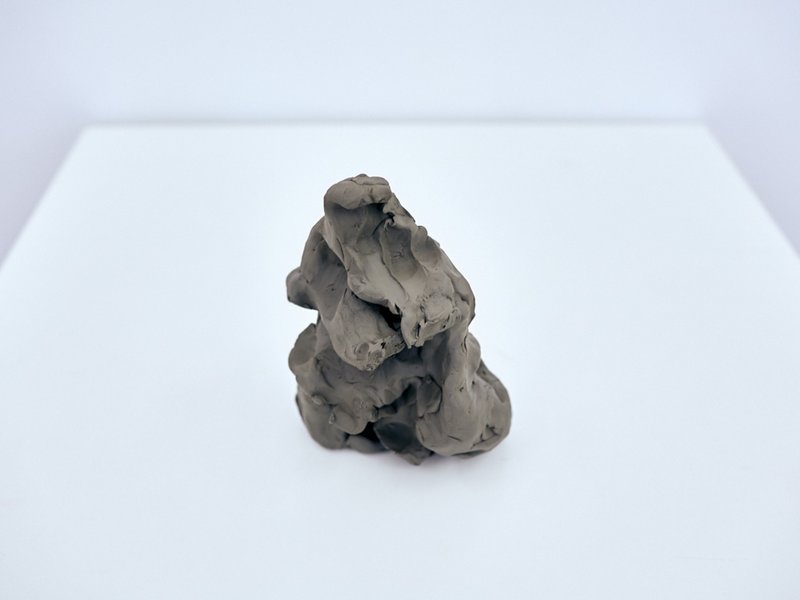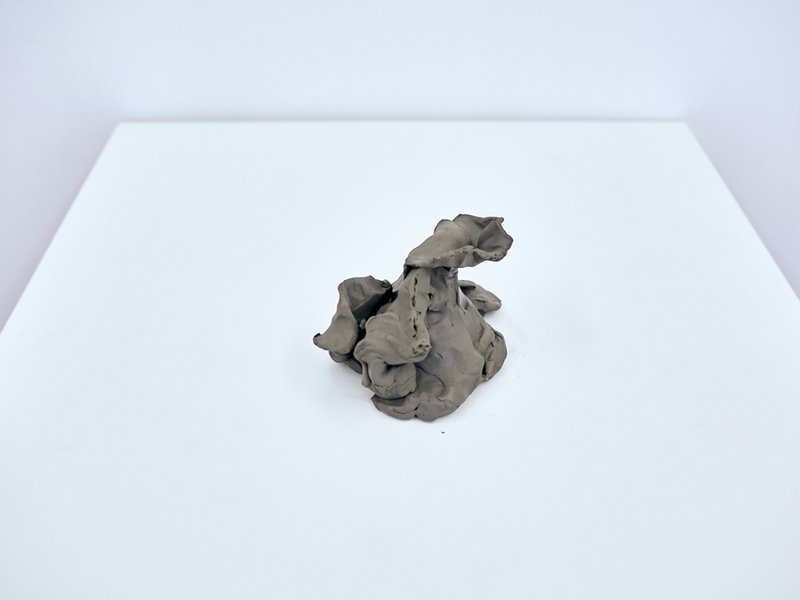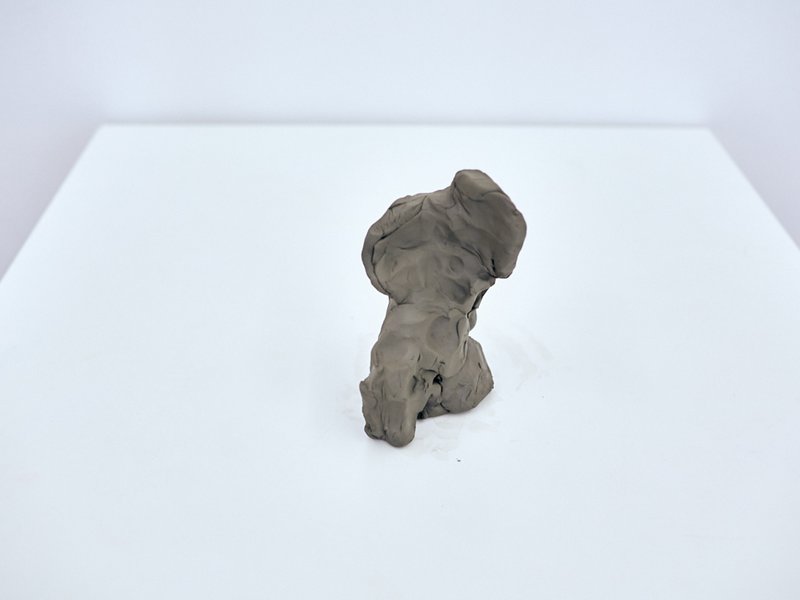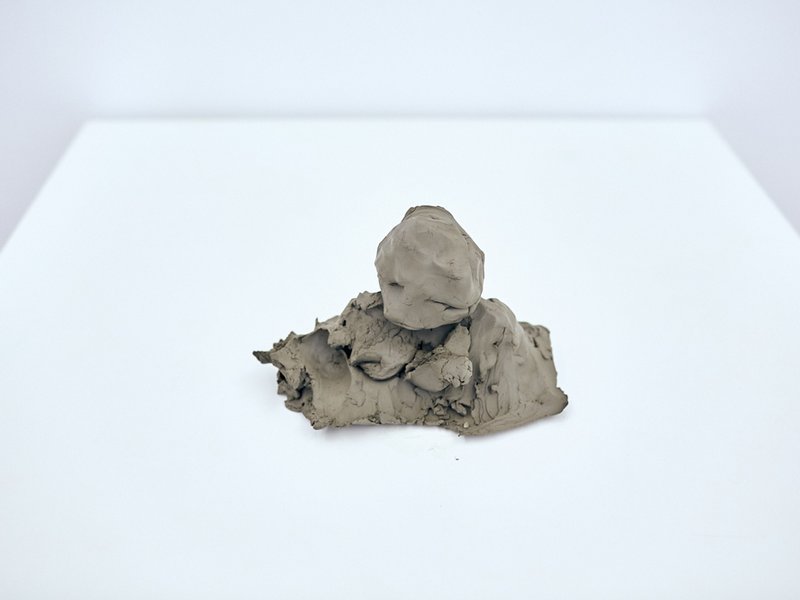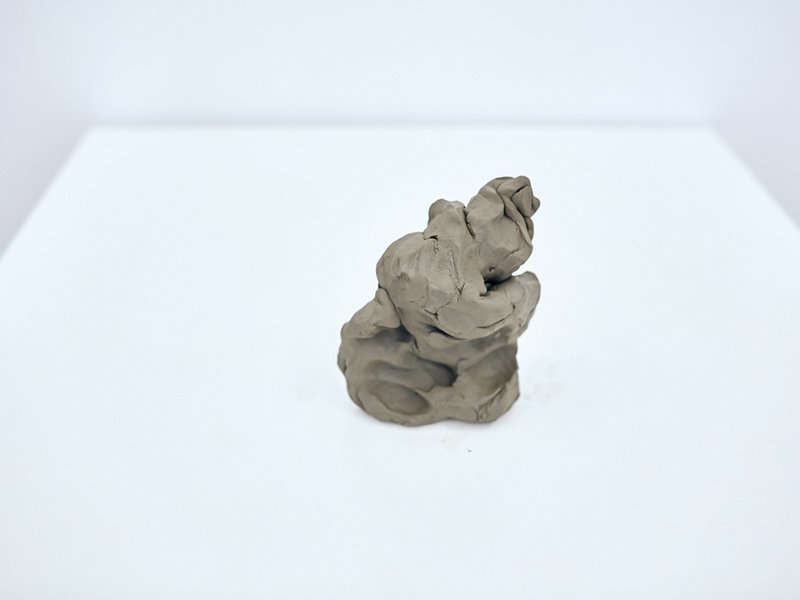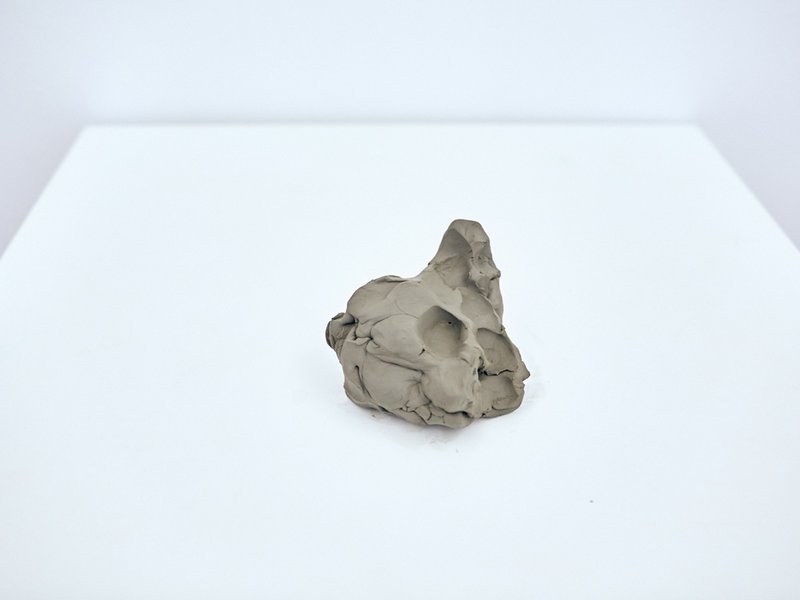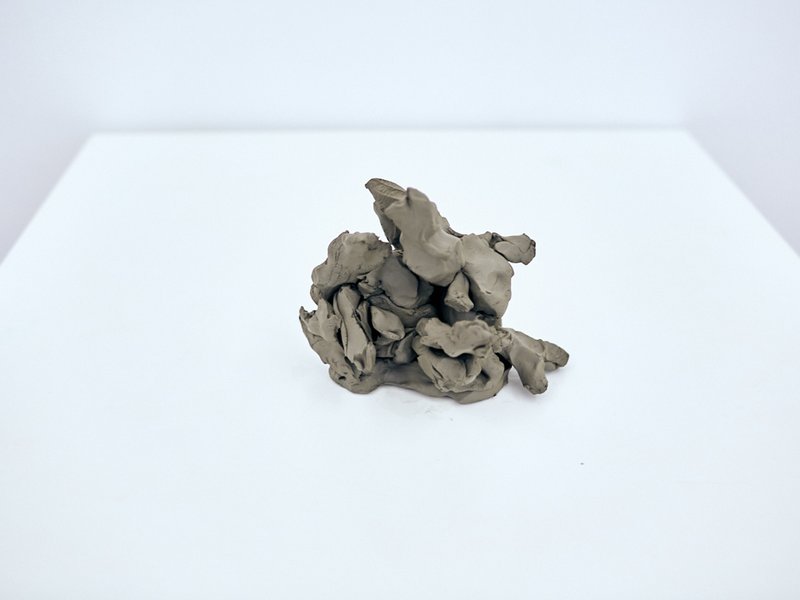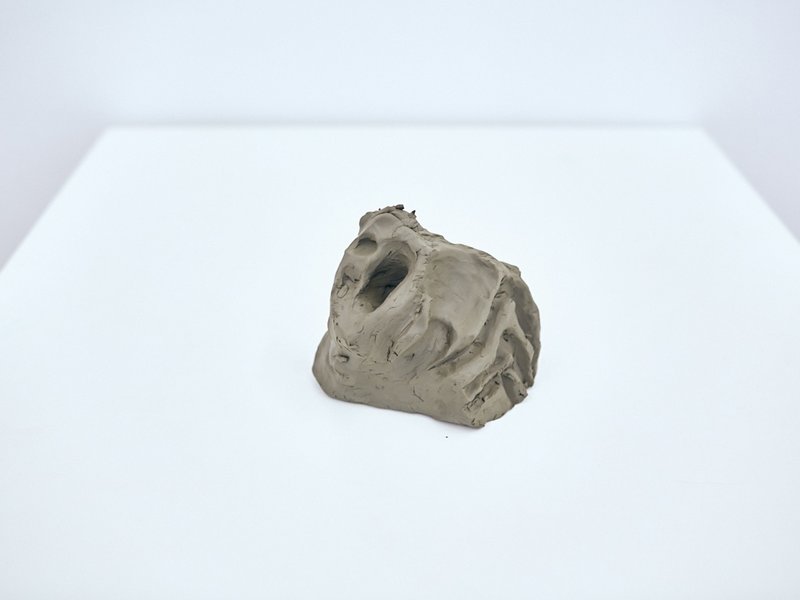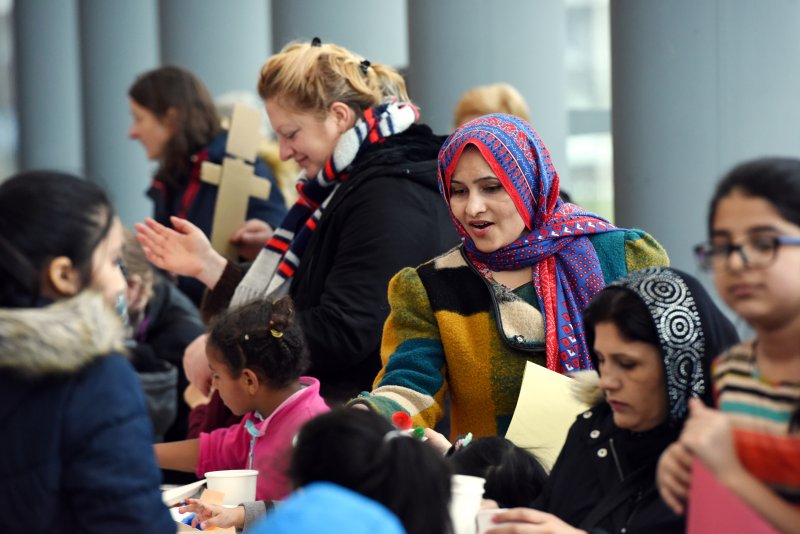
Map Making workshop at MIMA
Graph Commons
Through this project we create a new oral history archive for the Tees Valley in collaboration with residents, researchers, and activists. This draws together the experiences of settled populations, people of colour, and emerging communities, from the widest spectrum of backgrounds. This activity maps alternative routes of migration, labour and relationships through personal narratives in the largely unheard, often undocumented, voices of local people.
Instructions: Grab and move the graph around. Scroll to zoom-in and zoom-out.
Boro LIKE
At this partnership event with the Boro LIKE project, people were invited to talk about how they, their family and relatives came to settle in Middlesbrough and make the town home.
Boro LIKE focuses on celebrating Middlesbrough, a place built on migration throughout history, and applauds the town’s diverse community, through music, art, film and literature. From public discussions, giant storyboards were made together with the people, local writers, storytellers and artists. The stories and information gathered were used as the material for performances by Matt Abbott and Patrick Monahan.
‘The Roads Were Wide’, a new lyric poem by writer, activist, spoken word artist and creative practitioner Lisette Auton shares the stories collected at the event. This was shown as part of the exhibition This Is Water.
The Roads Were Wide, by Lisette Auton and the people of Middlesbrough, read by Martin Swainson.
A Lyrical Essay on the Question of Who Are We?
Written by Lisette Auton and all those that were present at MIMA on the 15 November 2018
We are age one. We are age ninety-four. We are older than that. We are younger than that. We are every age in-between, and the ones who aren’t here yet, and the ones who are gone. We carry them with us in our heritage and in our future.
- We worked together at Hintons. I was at the accounts desk. She was at the biscuit counter. Met at MIMA after seventy years. She doesn’t remember doing anything naughty.
- Next year he finishes military school, maybe he’ll come here.
We are our memories our hopes, our dreams, our fears and our wishes.
- I’d like my wife and children to come to here to a little house all together with no problems.
We are lists of how we like our tea and coffee.
- My husband has Parkinson’s.
- You’re very welcome to come and have a look at what we’re doing. We’re pleased to meet you.
Would you like a cup of tea? Come and have a wander and a look.
- I hate that cup. I like dinky cups. I have a dinky cup somewhere.
We are health and illness. We are a choir of older people practicing Christmas songs. We remember some of the words. We don’t remember some of the words. It doesn’t matter. We are together. We are beginnings and ends. We are string throwers, kazoo blowers, table decorators, amblers, needing a locked door and an open door. We are fearful, happy, lonely. We are the best joke we’ve heard recently. We are the best joke we’ve told recently.
- If I’m encouraged in the right way, I’ll do stuff.
- Highlight of the week for a lot of the carers looking for somewhere to go.
- It means I get out and relax. Instead of having my serious hat on I can act daft for a couple of hours. Shed responsibilities.
- We’re trying to get her home. It depends if we can get social services to adapt her house. She’s away with the fairies on oramorph.
We are from Iran, Iraq, Sudan, Japan, Syria, El Salvador, South Korea, Afghanistan, Up North, Down South and The Boro. We are a mix of nature and industrial.
- Teesside, it’s like an open book. People tell you stuff, you know? If you go to catch the train you have to leave fifteen minutes early to chat – properly chat. It’s welcoming to go into a community like that.
- The quietness. Calm, quiet. Important to me. My peace and quiet.
- We love the train station, the bus station, the Aldi, the shopping centre. They’re all near.
- We love the MIMA.
We work in education, with our hands, in construction, in technology, as mechanics, as electricians, in the arts, in finance, in call centres as mam, dad and grandparent. We do not work; there are no jobs. We do not work; we are sick. We do not work; we are in education. We want to work; we are not allowed. We once worked; we are retired. We are volunteers, employees, visitors and students.
- I’ve got a fondness for them. They tell me their experiences. There are a lot of characters downstairs, you’ll get to meet them all.
- Just over seven years I’ve been here. I’m settled here because I work here as an advice worker at the refugee centre.
- My kids are at full time school, wish I did have little ones to make more of it. Get out of the house here. Out of house work.
- I’m a mam to everybody. Every child and grown-up’s mam.
We watch TV, we draw, we learn to play guitar, we make clothes, we exercise, we run, we wrestle, we cage fight, we play sitar, we play football with our son, we cook, we walk, we illustrate, we play volleyball, we practice, we dance, we sing.
- I love you boxing. Very danger. Very good.
- We’re working on a version of Tosca. We’re working with a composer.
- I’ve been plastering at home. Sanding, painting, filling skirting boards.
We are a hubbub of language tied together by Googling how to make sushi and a proposed trip to the sea.
- Next Thursday, wear a hat, coat and scarf. It will be cold. - I have teacher, Teacher Mark. Very funny and good.
We are our favourite places. We love Whitby, being next to a computer, the theatre, where our children are, our home country, where we all cook together, Middlesbrough, MIMA, Canada, the City of Hull, swimming in the sea, Preston Park, the Alpha Course at our church.
- Whitby – beautiful beach and harbour, ships and boats. - Anywhere without problems.
- Quiet for thinking.
- I used to cry whenever I went across the Tyne Bridge.
We are members of Mini MIMA, Cultural Conversations, Community Lunch, Creative Age and Cloth Club, making bookmarks and embroidery to sell in the shop.
- Opened my eyes up to the art work. Quite powerful. Speaks out more about reality, what’s going on in community and life. The gay stuff in there at the moment, things about refugees and movement. I spent a good few hours in there.
- Sometimes I just pop in to take a look at the art.
- Made me more open-minded. Made me open my mind. Made me think.
We are Mini MIMA. We are the future. We climb and sing. We sit in the middle of the table, squat, cross legged and run our legs and hands through paint; our marks will be immortalised on the table cloths where the community will eat. We are the artists of the future. We are the residents of the future.
- I am brilliant at dancing.
- I am brilliant at scooting, playing the squeeze box. - I am brilliant at pulling my brother Finn’s hair. - I am brilliant at running and dancing.
- I am brilliant at waving and painting.
- I am brilliant at singing Peppa Pig.
- I am brilliant at helping mummy with the washing. - I am brilliant at climbing.
- I am brilliant at hosting tea parties.
We eat lunch together, all of us together, food together, on long trestle tables and our words gather and spiral up to the ceiling. It is a long way up. The words reach upwards.
- Free meal! Free for everyone!
- I’ll decide what I’ll eat when I get home. - I make a menu for the week.
- I just get something out the freezer.
- You are attracting people into the doors with the meal. That’s where this untapped potential is. You may find something amazing hidden away.
- It wasn’t about the food – loneliness and isolation, wanting to make connections.
- I like MIMA, because I make friends and learn English and I have lunch here. I spend my time here. Sometime MIMA protects me.
- We’re at the head of the table. The posh end.
We are our holidays to Spain, Portugal, Tunisia, Bulgaria on a bus to Teesside Airport.
- Well, you can’t go on holiday on your own. We’d go as a group on holiday. I kept a notebook with them all in. So you know what they cost. She’d say “Do you fancy going on a holiday to Spain?”, and all these hands would pop up! I haven’t been on holiday since 2016 – I can’t go on my own.
We are friends, strangers, relatives, carers, old, young. We are ageing, we are dying, we are smiling, we are loving and we are living. We are the people who learn names so we can all pause and then yell goodbye.
- Conversations are the special bit – break down barriers. - Any plans for the weekend?
- What’s your name?
We allow our face to be stroked, our chin to be held and our hair placed behind our ears. We are grandparents and grandchildren. We are lost memories, blurred memories, blurred realities. We are joyful in the sadness.
- I think it’s very important. People suffer from isolation.
- It’s always exciting. We give everything a go. We live in the moment.
We are using crayons and chalks and charcoal and paint and pens and swirls and flowers and hearts, and the interior of a home with a standard lamp with a wonky lampshade. We are trying to fill all the spaces. We are drawing a giraffe, a square, a hexagon. We are dropping our biscuit crumbs in the paint.
- I’ll tell you what, I really enjoy that.
We are in love, we are lovers, we love. We are hand held longing. We are lonely.
- My family in Sudan, two sisters and a brother. I hope to bring him to Middlesbrough. I like him. I miss him.
We are a community of difference; together.
- LOVE – love the people – quite accommodating – don’t mind having people from different backgrounds – I love that.
- I love Boro. Like the people, down to earth. Lived here all my life. I like the different cultures here. I know you can get a negative spin on it, but I hear the positives. I like the culture.
- I’ve seen blokes and girls produce works of art in addiction – seeing the work – blew my mind – all this hidden talent. Middlesbrough has massive hidden talent to tap into.
We are with friends, on the bus, in the car, to the market, to the car-boot sale on a Sunday.
- Ask our Tracey, she’ll tell you, I’ve had all sorts. Designer stuff and everything.
We are pink eyeshadow, tailored suits and tracksuits, new clothes, old clothes, designer clothes, charity shop. We are earrings with buttons and clouds.
- Never broken a rule.
- No I can’t sing! I just enjoy. Very nice. I can relax.
We are words that make no sense. We are words in different languages. We are words that are not yet formed. We are words that are forgotten. We are words to be recorded. We are words to be written.
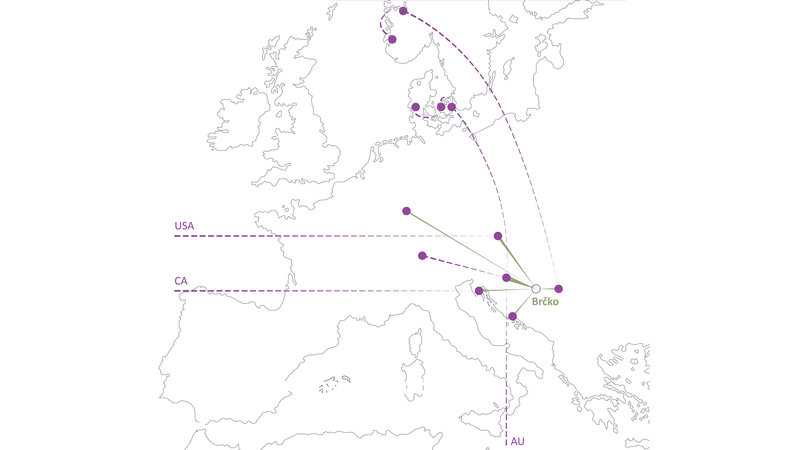
Map Making Workshop at ABKW
A work on mapping a life of a migrant by Amila Širbegović.
The refugee are devided in two categories: those with photographs and those without photographs, said one refugee.
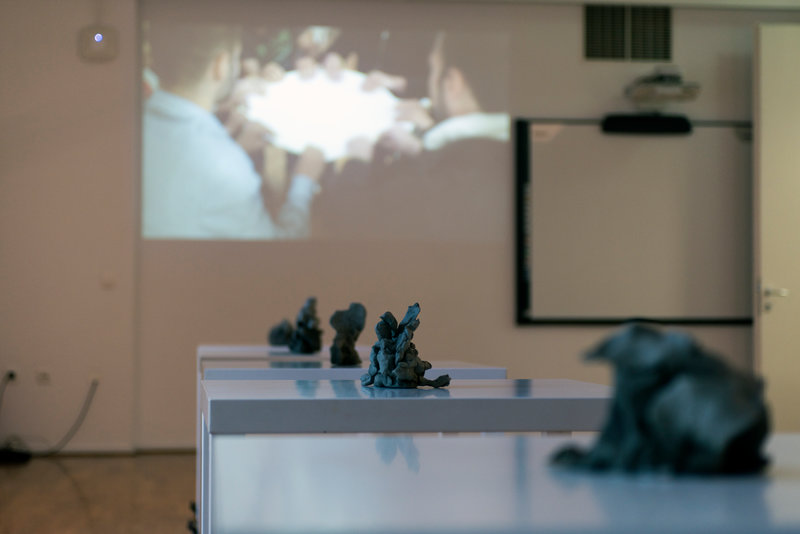
Circular Storytelling
A workshop with migrants led by the artist Ibro Hasanović at the Museum of Contemporary Art Metelkova from 29 September to 5 October 2018 resulted in a series methods to induce stories told in varius media:
- a performative video Circular Storytelling,
- a series of clay sculptures,
- lists of humorous examples of words pronunciated the same in Slovenian and migrants' mother tongues (Arabian, Farsi, Tigrinya, Tigre, Dahlik, Dari, Pashto) but have quite different and unexpected meaning.
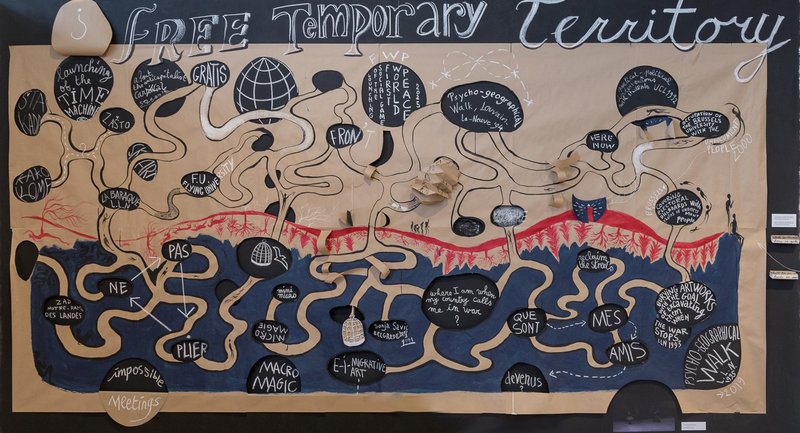
Free Temporary Territory
German military sources refer to temporary free territories as “floating islands”. In war conditions, life went on as usual and new rules were made on liberated territories, and the activities of the new government continued even after the partisans left these zones. How to reach free territories today? What are we alchemizing and sublimating today on territories of temporarily realized freedom? What are today’s vectors of the practice of freedom; where do we have to go, to emigrate; how can one become a migrant of an imposed everyday life in order to realize thought on freedom and free thought as emancipatory practice for all?
In 1991, a collective of Yugoslav artists in the making met, just before emigrating, at photo shoots (Where Am I When My Country Calls Me to War?, Belgrade 1991), in letters from exile and in the Belgian student’s city Louvain-la-Neuve as extra-territory. Through temporary “occupation” over the course of the art actions (Small-Mini-Micro Magic, Burying Artworks with the Goal of Excavating them When the War Stops), their aim was to symbolically contribute to the liberation of territories in a world that was in a permanent state of war.
Collective Migrative Art, later called E-I-Migrative Art, was formed as the answer to the occupation of the entire Yugoslav space in 1991.
Twenty-eight years later and almost seventy years after the first liberated territories of 1941 in Užice (the free territory of the Republic of Užice and/or Partizanska Drežnica, in the same year), the exhibition The Nineties: A Glossary of Migrations, which is part of the project New Mappings of Europe, at the Museum of Yugoslavia, reopens the possibility of questioning the same topics in the present circumstances of a seemingly pacified context: encirclement of a new kind. Are we in a permanent state of siege and war via different means, without typical methods of declaration of war? What is the view today on the free temporary territories of the partisan war, expressed through the historical, self-organized figures of guerilla organization of freedom: partisan hospitals, refugee camps, free education and artistic actions – on the present temporary free refugee territories reduced to places of shelter, healing and tending of wounds, in the context of a large global wound – mass exile and migrants? What are the benefits of temporariness, of transit? How to reenact the Yugoslav partisans’ gesture of mobility and work on permanent but transitory choreographies treaded by the partisans and experiment impossible breakthroughs and meanders of freedom? Which poem, on which free territory, has yet to be versified by each of us and launched against the great injustice of the world?
Temporary Collective E-I-Migrative Art
From the Free Temporary Territory
Program
10-12h
Sanja Horvatinčić, art historian Institute of Art History, Zagreb
From Partisan’s Liberated: Territories to the Present Migrant Routes: Monuments and material culture of refugees in Gorski kotar and Drežnica
Martin van der Belen, former artistic editor of the Louvain-la-Neuve Student Festival, today documentary producer and coordinator of La Nacelle, Belgian Foundation for Art and Environment, dealing with Migration, Belgium
Migrative Art: A Poetic-Political Intervention at the Catholic University of Louvain la Neuve 1992-1995
Ivana Momčilović, dramaturge, longtime active participant and coordinator of Migrative art, Brussels
Metaphysics of Free Territory: Blanqui →j Yugoslav Surrealists-partisans→Rojava
12-13h
Movie “What Happened to My Friends” + “Free Temporary Territories” by Migrative Art
13-14.30
Guiding tour through the exhibition
15h-17.30
Marie Pierre de Buisseret – former student of Louvain la Neuve and host of a student in migratory art. Graduated in Law and Plastic Arts. Today lawyer specializing in asylum and migration law, Brussels
Law and art as complementary tools in the questioning of migratory policy
Miloš Ćorović – writer, Belgrade
Art and Migration of Free Territories
Dragan Živadinov – director and candidat kosmonaut, Ljubljana
Free Temporary Territories in the Universe
Map making
Map Making is a transversal mediation activity, which will take place in all four venues and include artists, educators and members of local migrant communities.
Every workshop will include different participants, who will produce a map using different materials; in Vienna, for example, the map will be realized by self-organized groups of knitters as a textile object; in MIMA, with the participation of the local refugees and the artist Burak Arikan, as a Graph Commons platform. At the Museum of Yugoslavia, the workshop will be based on the personal stories and oral histories of five refugees to or from Serbia from the 1990s, realized in collaboration with ŠKART art collective; while in Ljubljana the workshop will take place at the local asylum centre with the Bosnian artist Ibro Hasanović.
In this way, each partner will provide a map in an edition of 4 + 1. At the end of the project, each partner will get four different maps (one from each partner institution). One map will always remain in the local migrant community. More detailed descriptions of the workshops can be found within the partners’ individual mediation activities.
Map Making will not only contribute to the greater visibility of the project, but also serve as an example of an innovative mediation method, using artistic activities to create the conditions for social cohesion.
